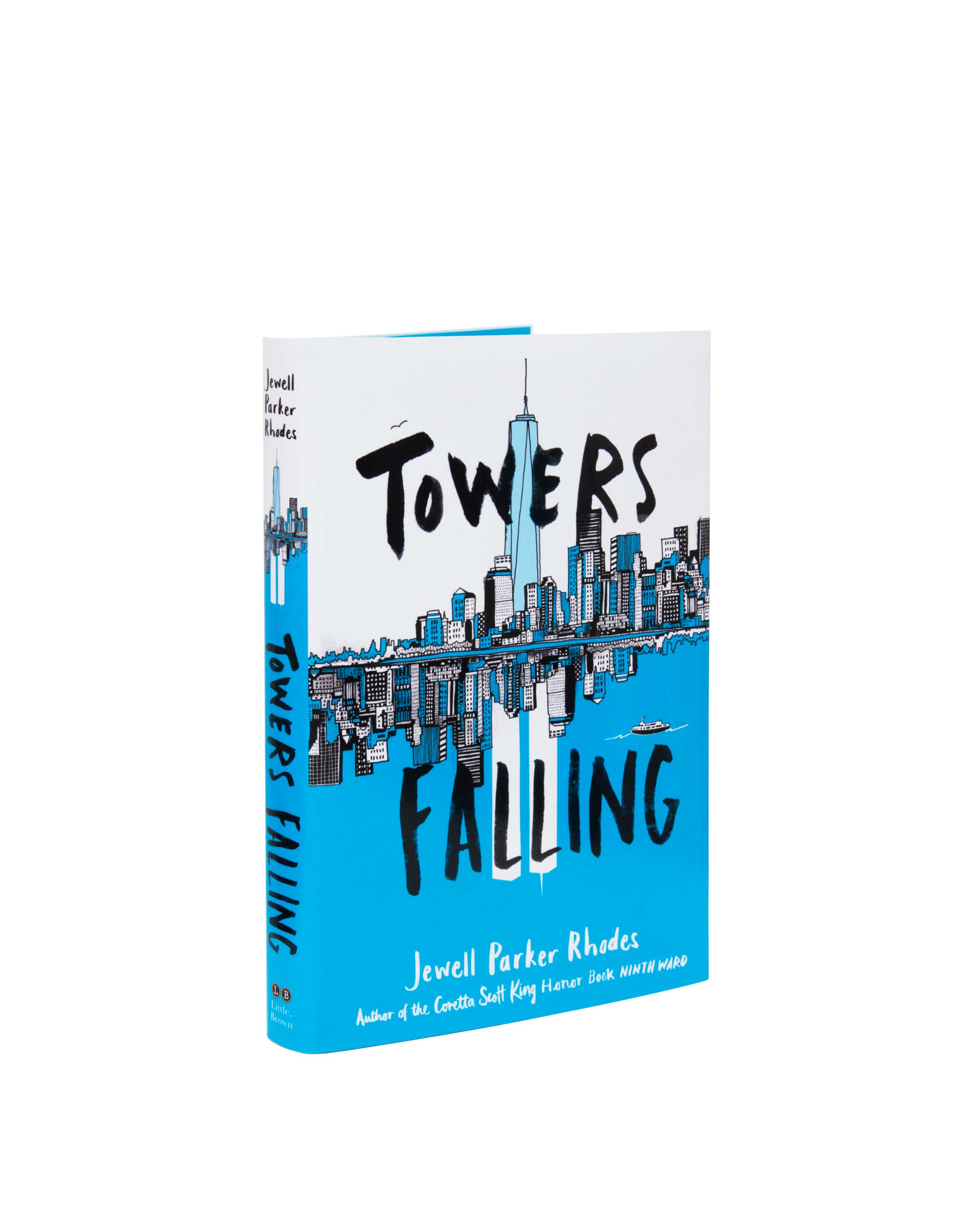
In the hours, days and months after the 9/11 attacks, Americans asked a series of questions: What happened? How many people died? Who did this? And, in the parlance of cable news, Why do they hate us?
For those of us who lived through the attacks, the responses to those questions are familiar if not complete. But 15 years later, parents of children born after 2001 struggle to come up with answers that explain the events and their aftermath without diminishing the terror of that sunny September day.
In Jewell Parker Rhodes’ new novel, Towers Falling, 10-year-old Dèja has never heard about the attacks. As the present-day story begins, her family of five have just been evicted from their Brooklyn apartment and moved into a homeless shelter, in part because her depressed, chronically ill father can’t work. The new surroundings destabilize Dèja, but the shelter is in a nicer neighborhood with a better school. There, she happily makes friends with a new boy from Arizona and a popular Muslim girl, and she’s shocked by lesson plans and after-school chatter about 9/11. As she processes the information, she struggles to see what it has to do with her life. “I wasn’t even born. I’m sorry they’re dead,” she says. “But why should I care?”
Rhodes has a talent for teaching kids to care about major events–her 2010 Hurricane Katrina novel, Ninth Ward, is a Coretta Scott King Honor Book–and her emphasis on critical thinking would make Towers Falling at home on a Common Core curriculum. By the end of the book, Dèja does understand why she should care about the past, not least because she learns that 9/11 has something to do with her father’s coughs and headaches.
In Dèja, Rhodes has created a curious, resilient character whose journey can help other children process the horrible events that shape the world into which they are born. Parents too will appreciate the age-appropriate takeaways that play it sagely down the middle. “History is about feelings, too,” Dèja writes in a school essay. “I’m happy I’m American. But sometimes American history isn’t happy.”
–SARAH BEGLEY
More Must-Reads from TIME
- Why Trump’s Message Worked on Latino Men
- What Trump’s Win Could Mean for Housing
- The 100 Must-Read Books of 2024
- Sleep Doctors Share the 1 Tip That’s Changed Their Lives
- Column: Let’s Bring Back Romance
- What It’s Like to Have Long COVID As a Kid
- FX’s Say Nothing Is the Must-Watch Political Thriller of 2024
- Merle Bombardieri Is Helping People Make the Baby Decision
Contact us at letters@time.com